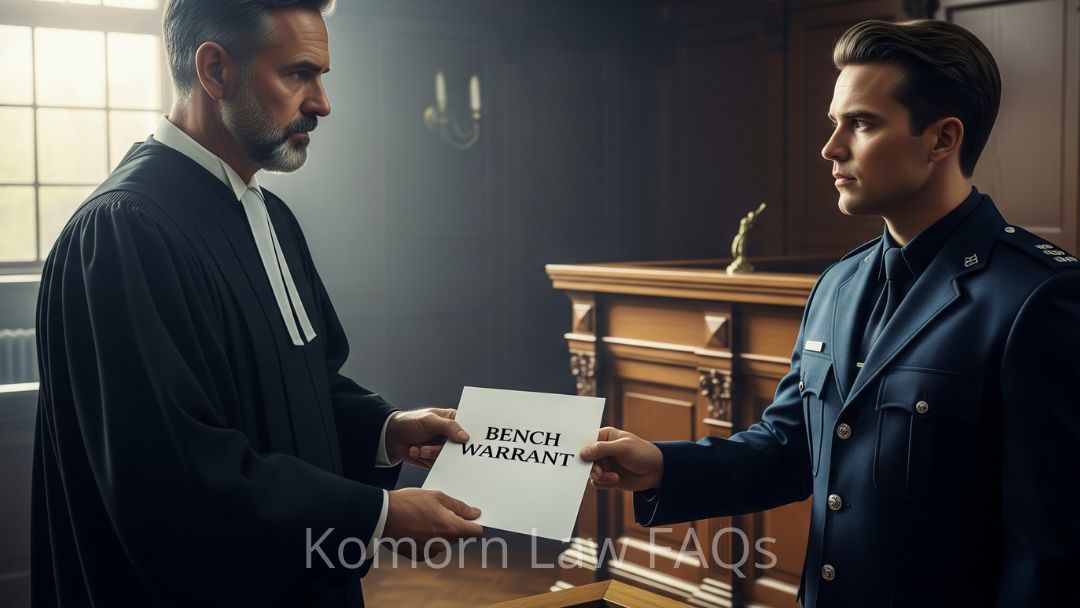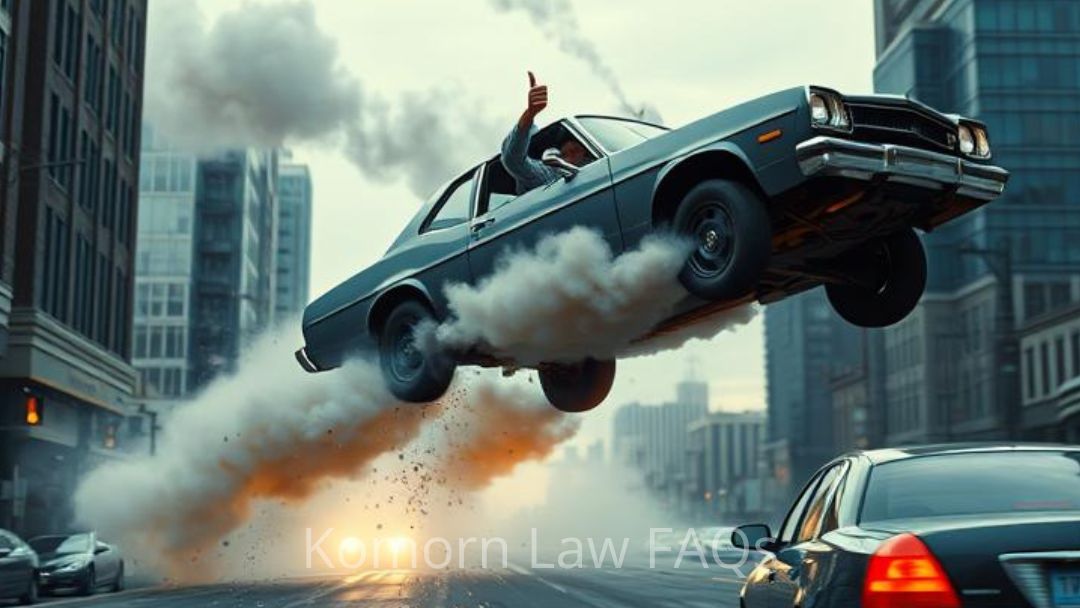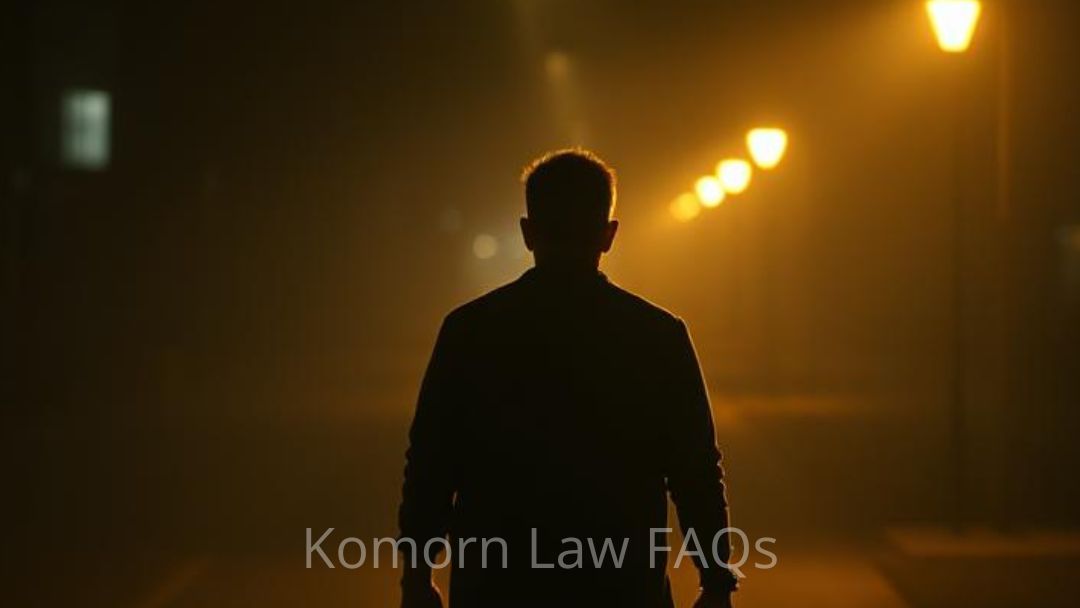Michigan Criminal Laws FAQs Drunk and DisorderlyAccording to Michigan State Law (Michigan Compiled Laws - MCL), there isn't a specific statute that solely defines "Public Drunkenness" as a statewide criminal offense in the same way some other states might have a...

Criminal Law FAQs – Bench Warrant
Michigan Criminal Laws FAQs
Bench Warrants
According to Michigan State Law (Michigan Compiled Laws – MCL), a Bench Warrant is a court order that directs law enforcement officers to arrest and bring a specific individual before the court. It’s issued by a judge (from the “bench”) when someone fails to comply with a court order or requirement. Unlike an arrest warrant, which is typically issued at the beginning of a criminal case, a bench warrant is issued after a case has begun, usually due to non-compliance.
FAQ 1: What is a bench warrant in Michigan?
A bench warrant in Michigan is a court order issued by a judge that compels law enforcement to arrest a specific person and bring them before the court. It’s typically issued when an individual fails to comply with a court order, such as:
- Failing to appear for a scheduled court hearing (e.g., arraignment, pre-trial conference, trial, sentencing).
- Violating the terms of probation.
- Failing to pay fines or court costs.
- Failing to comply with a subpoena.
- Failing to appear in court for a traffic violation.
The warrant gives law enforcement the authority to arrest the person named in the warrant.
FAQ 2: How do I know if I have a bench warrant in Michigan?
It can be difficult to know definitively if you have a bench warrant unless you are directly notified by law enforcement or the court. However, you can try the following:
- Contact the court: If you suspect you may have missed a court date or failed to comply with a court order, contact the court where your case is pending. You can call the court clerk’s office and inquire about your case status.
- Check online court records: Some Michigan courts have online databases where you can search for case information. However, not all warrants are listed online, and this is not a guaranteed way to find out.
- Consult an attorney: An attorney can check for outstanding warrants on your behalf.
- Be cautious about online warrant searches: There are third-party websites that claim to provide warrant information, but these may not be accurate or up-to-date. It’s best to rely on official sources.
FAQ 3: What should I do if I have a bench warrant?
If you discover that you have a bench warrant in Michigan, it’s crucial to take immediate action:
- Do not ignore it: Ignoring a bench warrant will not make it go away and can lead to further legal complications.
- Contact an attorney immediately: An attorney can advise you on the best course of action, help you understand the reason for the warrant, and represent you in court.
- Do not attempt to resolve the warrant on your own without legal counsel: This is especially important if the warrant relates to a criminal matter.
- Gather any relevant documentation: Collect any paperwork related to the court case or the reason for the warrant.
- Follow your attorney’s advice: They will guide you through the process of resolving the warrant, which typically involves appearing in court.
FAQ 4: Can I be arrested anywhere if there’s a bench warrant out for me in Michigan?
Yes, if there is a valid bench warrant for your arrest in Michigan, you can be arrested anywhere in the state, and potentially even outside of Michigan if the warrant is entered into a national database. Law enforcement officers are authorized to execute the warrant, meaning they can take you into custody. This can happen during a traffic stop, at your home, at your workplace, or in any other location where you are encountered.
Recent FAQ Posts – More Below
Criminal Law FAQs – Drunk and Disorderly
Criminal Law FAQs – Drinking Alcohol or Smoking Marijuana and Driving
Michigan Criminal Laws FAQs Operating a Motor Vehicle Under The InfluenceWalking is cool... For fun and excercise. Not because you lost your license. Don't do the crime if you can't pay the price. But if you do get charged with a crime. Better Call Komorn to fight for...
Criminal Law FAQs – Probation Violations
Michigan Criminal Laws FAQs Theft CrimesAccording to Michigan State Law (Michigan Compiled Laws - MCL), a Probation Violation occurs when a person who has been sentenced to probation fails to comply with the terms and conditions of their probation order. These terms...
FAQ 5: How can your firm help me resolve a bench warrant in Michigan?
Komorn Law has extensive experience in assisting clients with resolving bench warrants in Michigan. Our attorneys can:
- Determine the reason for the warrant: We will investigate the underlying cause of the bench warrant, whether it’s a missed court date, a probation violation, or another issue.
- File a motion to quash the warrant: We can file a legal motion with the court requesting that the warrant be withdrawn. This often involves scheduling a court appearance to address the reason for the warrant.
- Represent you in court: We will appear in court on your behalf to explain the circumstances, negotiate with the prosecutor or judge, and work to resolve the warrant in the most favorable way possible.
- Minimize potential consequences: Depending on the reason for the warrant, we will work to minimize any potential penalties, such as jail time or further legal complications.
- Provide guidance and support: We understand that dealing with a bench warrant can be stressful. We will provide you with clear communication, guidance, and support throughout the process.
If you have a bench warrant in Michigan, contact Komorn Law immediately for experienced legal assistance. We can help you navigate the legal system and resolve the warrant efficiently and effectively.
DO NOT IGNORE A BENCH WARRANT.
Getting picked up on a bench warrant in Michigan can have serious consequences affecting your driving privileges, job, finances, and even your freedom. It’s crucial to understand your rights and explore all available legal options.
Contacting an experienced criminal defense attorney as soon as possible is essential. At Komorn Law, our attorneys have a deep understanding of Michigan’s laws and can provide you with a strong defense to protect your rights and future. Call 248-357-2550
Komorn Law
Accused of Traffic Violation? – Better Call Komorn
Komorn Law
Areas of Service
We fight for our clients throughout the State of Michigan and Northern Ohio.
Here are some court contacts we frequently handle cases.
Oakland County
If you are facing any legal charges in Oakland County and need to hire an attorney, call our Office (248) 357-2550. If you need to contact the court, here is the information:
- Telephone Number: (248) 858-0344
- Address: 1200 N Telegraph Rd, Department 404, Pontiac, MI 48341-0404
- Website:
Oakland County 6th Judicial Circuit Court
Macomb County
If you are facing any legal charges in Macomb County and need to hire an attorney, call our Office (248) 357-2550. If you need to contact the court, here is the information:
- Telephone Number: (586) 469-5150
- Address: 40 N. Main Street, Mt. Clemens, MI 48043
- Website:
Macomb County 16th Judicial Circuit Court
Wayne County
If you are facing any legal charges in Wayne County and need to hire an attorney, call our Office (248) 357-2550. If you need to contact the court, here is the information for the Third Circuit Court (Wayne County):
- Telephone Number (Civil/Family): (313) 224-5510
- Telephone Number (Criminal): (313) 224-5261 or (313) 224-2503
- Address (Civil/Family): 2 Woodward Avenue, Detroit, MI 48226
- Address (Criminal): 1441 St. Antoine, Detroit, MI 48226
- Website:
https://www.3rdcc.org/
Kent County
If you are facing any legal charges in Kent County and need to hire an attorney, call our Office (248) 357-2550. If you need to contact the court, here is the information:
- Telephone Number: (616) 632-5220
- Address: 180 Ottawa Avenue NW, Grand Rapids, MI 49503
- Website:
Kent County
Traverse County
If you are facing any legal charges in Traverse County and need to hire an attorney, call our Office (248) 357-2550. If you need to contact the court, here is the information for the 13th Circuit Court (which includes Traverse County):
- Telephone Number: (231) 922-4701
- Address: 328 Washington Street, Suite 300, Traverse City, MI 49684
- Website: Traverse City 13h Circuit Court
Monroe County
If you are facing any legal charges in Monroe County and need to hire an attorney, call our Office (248) 357-2550. If you need to contact the court, here is the information:
- Telephone Number: (734) 240-7020
- Address: 106 E First Street, Monroe, MI 48161
- Website: Monroe County 38th Circuit Court





